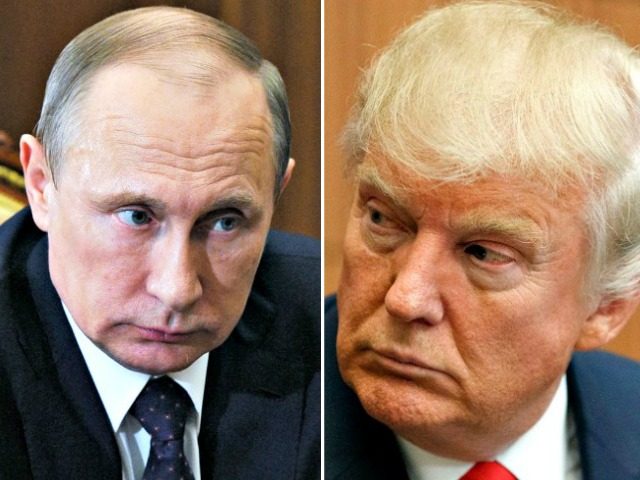In an interview broadcast Sunday night , former Putin adviser Sergey Karaganov said that, to the best of his knowledge, “there were no serious connections, fortunately, or unfortunately” between Donald Trump’s presidential campaign and the government of Russia.
Karaganov was the chief foreign policy adviser to Russian President Vladimir Putin from 2001 to 2013 and is now dean of World Economy and International Affairs at the Higher School of Economics in Moscow.
“Do you think that there are any connections that Trump has with Russia that we should know of? What do you make of those reports?” CNN host Fareed Zakaria asked Karaganov.
“To the extent I know, there were no serious connections, fortunately or unfortunately. Now, I would say fortunately because of the heat of the fight within your country. I mean, all connections which you could have had would have been to the detriment of Russia, to the detriment of your president,” Karaganov replied.
He also disputed the notion that Russia affected the outcome of the 2016 U.S. presidential election through cyber-warfare.
“Personally, I would have loved that Russians would have interfered like that,” Karaganov added. “Our American partners should be educated that they live in the crystal palace and they should stop interfering into internal affairs of other countries, they should stop regime changes, et cetera. I mean if we do that, that would be a great lesson for Americans. I am not sure whether we were able to do that.”
As these comments suggest, Karaganov is an unabashed booster for his home team, declaring elsewhere in the interview that “Russia is winning.” He said Russia has “restored its might and it has restored its possibility to deter,” which will lead to “a more balanced world.”
Karaganov said the liberal international order — or “liberal disorder” or “hegemonic disorder” as he also called it — which the United States has sought to impose on the world since Bill Clinton’s presidency, “collapsed” during the Obama years, and Donald Trump’s election was a result of that collapse.
“I believe that he could lead the United States toward becoming a more powerful nation if and when he’s allowed to do that,” Karaganov said of Trump. “Whether that is good for Russia, I’m not sure, because we will be competitors even if we understand each other and even if we cooperate at margins.”
Zakaria noted that, in a recent essay about the collapse of the liberal international order, Karganov said that Hillary Clinton “was viewed, particularly negatively as a symbol of liberal interventionism, of neo-conservatism, of a kind of expansionist American foreign policy that tried to maintain America’s kind of central status in the world.”
Karaganov agreed with that characterization of his essay, adding that Russia was even more concerned with the clique of “neo-conservatives and liberal interventionists” surrounding Clinton, deeming them “dangerous” because they would have tried to restore the international order that died under Barack Obama.
For context, Karaganov was one of a number of Russian sources quoted by the New York Times in a February 14 piece that labored mightily to portray the resignation of National Security Adviser Michael Flynn as a buzzkill for Russian “euphoria” over Trump’s election victory.
To convey a sense of its tenor, the first line in the article was: “The champagne toasts that some Russian officials quaffed just a few short months ago to celebrate the victory of Donald J. Trump have gone a bit flat.” The implication is that Flynn was, at the very least, highly sympathetic to the Russians, so they must be crestfallen by his ouster.
However, most of the Russians quoted in the article said the Flynn resignation was relatively unimportant, and what concerned them was the possibility that Trump would prove to be as “erratic” as his predecessor. The Russians mostly use “erratic” as code for linking issues they believe should be completely unrelated, such as their conduct in Syria linked with U.S. arms control negotiations.
Karaganov’s contribution to the article was, as he would later tell Zakaria, the assertion that Russian foreign policy was a “success,” and it should “stay the course” rather than making compromises to cultivate a better relationship with Washington.
He was a bit more optimistic in his take on the first meeting between Russian Foreign Minister Sergey Lavrov and U.S. Secretary of State Rex Tillerson in Germany last week. “I’m sure the outcome of these talks was constructive. And thanks to this, Russian-US relations will gradually start pulling out of the current crisis,” he told Russia’s TASS news service.

COMMENTS
Please let us know if you're having issues with commenting.